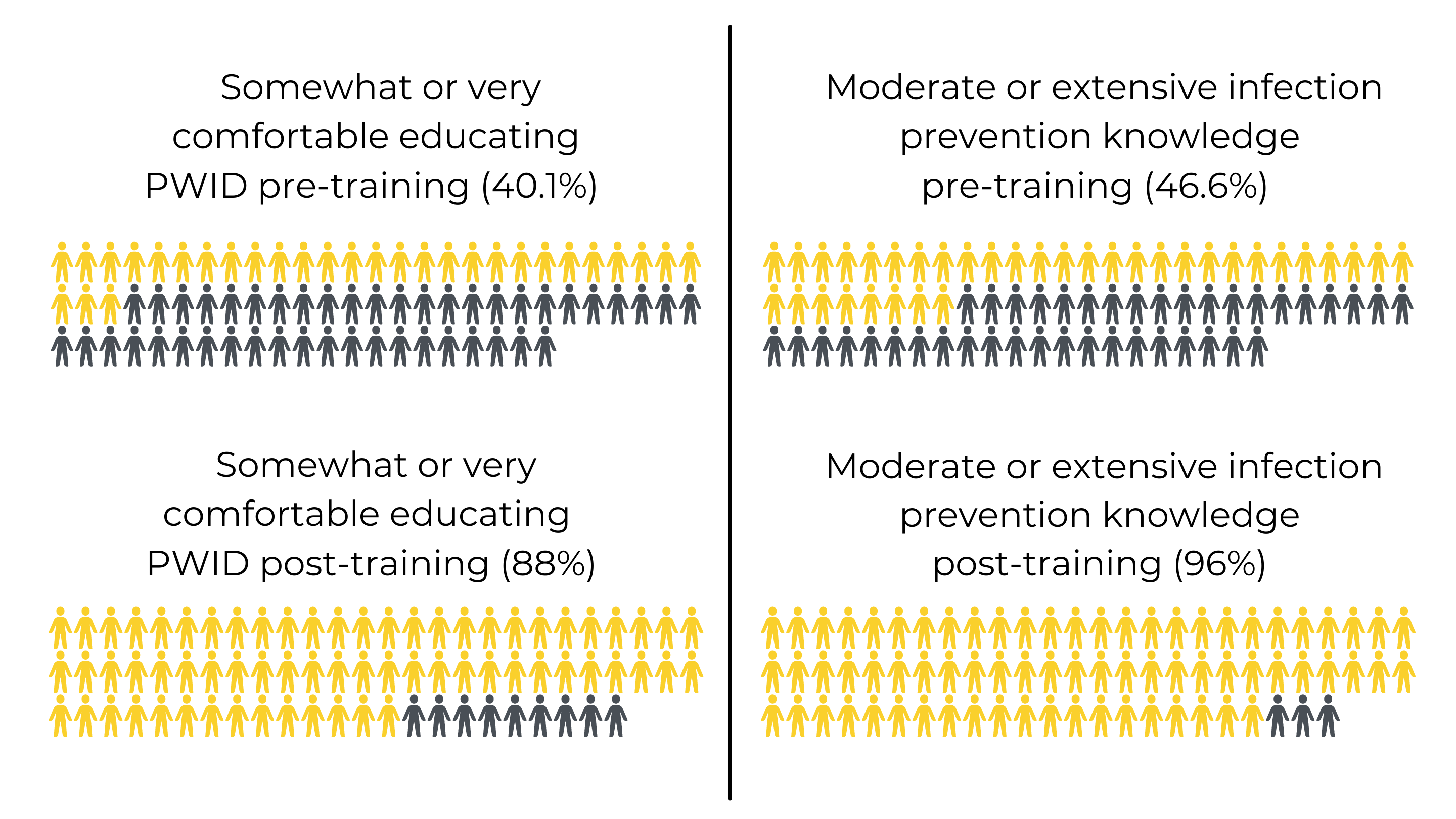STASH, Vol. 18(4) – Health care providers report improved knowledge and comfortability working with people who inject drugs as a result of the Six Moments training
Injection drug use is associated with high rates of transmission of HIV, hepatitis B virus, hepatitis C virus, and endocarditis. These complications have become increasingly common due to the persistent opioid epidemic, particularly frequent injection of fentanyl. As a result, harm reduction efforts like supervised consumption sites, syringe service programs, and immunizations are even more urgently needed. This week, STASH reviews a study by Leah Harvey and colleagues that aims to educate health care providers about infection prevention strategies for people who inject drugs (PWID) via a training on the Six Moments of Infection Prevention in Injection Drug Use tool.
What was the research question?
Would training health care providers on the Six Moments of Infection Prevention in Injection Drug Use tool improve their knowledge and comfort around harm reduction strategies for PWID?
What did the researchers do?
Researchers developed the Six Moments of Infection Prevention in Injection Drug Use tool, adapting it from the World Health Organization (WHO)’s Guidelines on Hand Hygiene in Health Care. Six Moments recognizes six potential opportunities for infection during the injection process, identifies a potential opportunity for infection during each injection step, and highlights a specific infection prevention strategy that can decrease the likelihood of transmission. The researchers recruited 75 health care providers (e.g., nurses, social workers, medical students, pharmacists) from various U.S. medical centers to participate in a Six Moments training. They used a nine-question pre- and post-training survey to assess providers’ comfort and experience working with PWID along with knowledge-based questions about different types of infections and harm reduction strategies. They used one-sided, nonparametric sign tests and a nonparametric, one-sided Wilcoxon signed-rank test to assess changes from pre- to post-training.
What did they find?
Most participants (65.3%) had completed at least one other harm reduction training prior to the Six Moments training. Despite previous training, most respondents (80%) reported never referring a client to a syringe service program, but after the Six Moments training, 100% of respondents considered doing so in the future. This training particularly increased provider knowledge around immunizations used to prevent the transmission of infection via injection drug use; however, it did not increase knowledge about all infection prevention strategies. Respondents incorrectly identified needle sharing as a harm reduction strategy. Other than this inconsistency, the Six Moments training overall increased respondents’ knowledge of infection prevention strategies. Pre- and post-survey median scores also indicated an increase in provider comfort levels regarding educating and counseling PWID about harm reduction strategies (see Figure). The majority of respondents (89%) also indicated that they would likely use the Six Moments model in their own practice.
Figure. Increase in comfortability (from 40.1% to 88%) and knowledge (from 46.6% to 96%) of infection prevention strategies as a result of the Six Moments of Infection Prevention in Injection Drug Use training. Click image to enlarge.
Why do these findings matter?
Infections caused by injection drug use have increased as a result of the opioid epidemic, and the findings from this study suggest that there is a lack of knowledge and comfortability among health care providers to counsel PWID and use appropriate infection prevention strategies. The Six Moments training raises awareness about actions that should be taken to decrease the likelihood of infection transmission. This adaptable, educational tool stimulates the connection between scientific research and practice implementation whether that be among clinical or nonclinical staff. These types of trainings have led to a decrease in blood-borne viral infections. This is an important first step for expanding services for PWID, but there is still some room for improvement.
Every study has limitations. What are the limitations in this study?
This Six Moments training appeared to be effective in increasing knowledge and comfortability among participants; however, more research needs to be conducted to determine if this intervention is sustainable. Because the surveys were only conducted immediately after the training, long-term assessments would also be beneficial to identify any gaps in knowledge over time. Additional implementation strategies like educating providers on the specific steps involved in drug injection or using lived experience and peer support strategies to perform outreach activities among PWID may be helpful in ensuring these infection prevention efforts make a lasting change.
For more information:
RIZE Massachusetts is a non-profit organization whose mission is to provide sustainable interventions geared towards helping improve the lives of people with opioid use disorders. The National Harm Reduction Coalition is an allied organization for the substance use community that builds on the capacity for evidence-based, harm reduction strategies that utilize the lived experience of those living with substance use. For additional addiction resources, please visit our Addiction Resources page.
— Nakita Sconsoni, MSW
What do you think? Please use the comment link below to provide feedback on this article.
